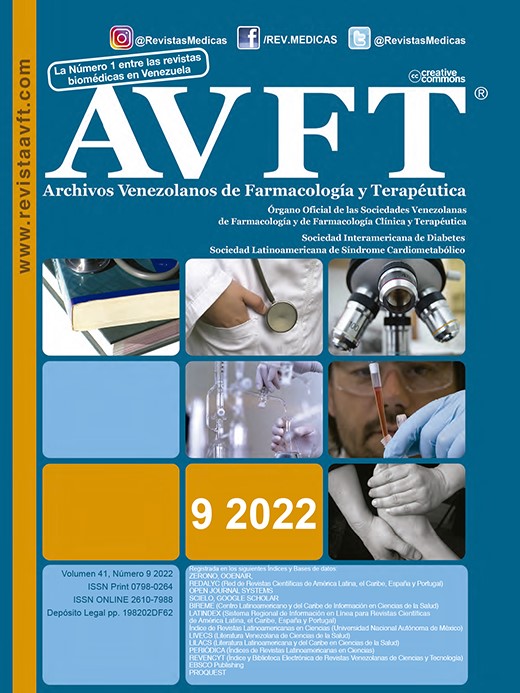Scientific production of Ecuadorian Universities
Keywords:
Research, publishing, higher education, scientific production, Scopus.Abstract
Scientific production is a topic of vital importance in Ecuadorian Universities, year after year the evaluation standards and rankings of publications of Higher Education Institutions take these indicators as a reference to determine the quality of each one of them. Therefore, it is essential to analyze the reality of the country in this area and the increase in the dissemination of knowledge in recent years. The objective of this research was to determine the state of development of scientific production in Ecuadorian universities, in the period from 2015 to 2019, with an analysis of its global, national, and local context. The following were used as data collection instruments: scientific databases, national control, accreditation agencies, and digital repository websites. The results showed that in Ecuador, universities in category A are more productive in terms of high-impact publications; however, there is evidence of great progress in type B universities in the factors referring to research and dissemination of results in scientific databases. In conclusion, Ecuadorian universities have made progress in research compared to previous years.
Downloads
References
Espinosa V. Dissemination and dissemination of scientific research. Idesia. Chile: Universidad de Tarapacá. Faculty of Agronomic Sciences. 2010. https://doi.org/10.4067/s0718-34292010000300001
Presidencia de la Repúbica del Ecuador. Ley orgánica de educación superior. LOES. Quito. Ecuador. 2010. www.lexis.com.echttps://www.epn.edu.ec/wp-content/uploads/2018/08/LOES.pdf
Evaluation and Assurance Council of Ecuador. Modelo genérico de evaluación
del entorno de aprendizaje de carreras presenciales y semipresenciales de las universidades y escuelas politécnicas del Ecuador. Quito. Ecuador. 2015.
Méndez S. García R. Ortega J. Scientific production in the Ecuadorian university: a perspective on the diffusion of national. regional and global knowledge. Pedagogical sciences and innovation journal. 2016; 4(2):54–59. https://doi.org/10.26423/rcpi.v4i2.136.
Álvarez L. Blasco J. La evaluación y acreditación de la educación superior ecuatoriana y la producción editorial Higher education evaluation and accreditation. and editorial production in Ecuador. Universitas. Journal of Social and Human Sciences. 2014; (21): 163–181. https://doi.org/10.17163.uni.n20.2014.15.
Bruque S. Scientific production in Ecuador in the Latin American context. 2014.
Sandra M. Journals and scientific production in Latin America and the Caribbean: their visibility in SciELO. RedALyC and SCOPUS. Inter-American Journal of Library Science. 2011; 34(2):187–199. http://www.redalyc.org/articulo.oa?id=179022554006.
Scimago Journal & Country Rank. (2019). Statistical indices of scientific production. 2019. https://www.scimagojr.com/countrysearch.php?country=ec.
Latindex. Indexes Country Catalogue. 2019. https://www.latindex.org/latindex/tablaPais?id=16&id2=1.
Campos N. Why is it important for staff to do research? Reflection based on data from an ethnographic research experience. Current Research in Research. 2015; 15(3): 1–16. https://revistas.ucr.ac.cr/index.php/aie/article/view/21071/21199.
Bondarenko N. The research component and teacher training in Venezuela. Pedagogical Studies (Valdivia). 2009; 35(1):253–260. https://doi.org/10.4067/S0718-07052009000100015.
Pérez A. Education in values: the art of educating in a positive way. Paulinas. 2003.
Hernández I. The teacher-researcher in the formation of professionals. Universidad Católica Del Norte Virtual Magazine. 2009; (27): 3–6.
Miguel S. Journals and scientific production in Latin America and the Caribbean: their visibility in SciELO. RedALyC and SCOPUS. Inter-American Journal of Library Science. 2011;34(2): 187–199. http://www.scielo.org.co/pdf/rib/v34n2/v34n2a6.pdf.
Cabrera-Mejía JB. Martínez-Suárez PC. et al. Analysis of problem-based learning impact on academic performance according to the forgotten (Fuzzy) effects theory. Arch Venez Farmacol Ter. 2020;39(5):651-659.
Andrade MC. Urgilés PT. Estrella MA. Information and communication technologies in the development of stochastic models applied to the health sector. Medicina. 2020; 80(1):31-38. Disponible en: https://pubmed.ncbi.nlm.nih.gov/32044739/
Romero-Sacoto LA. et al.. Personal protective equipment for COVID-19 patient care: a systematic review. Arch Venez Farmacol Ter. 2021;40(7):666-674.
Minchala-Urgilés RE. et al. Therapeutic opportunities in adult patients with covid-19. Arch Venez Farmacol Ter 2021;40(7):675-679.
González-León FM. et al. Fear and behavioral self-assessment for care in the face of the covid-19 health emergency in the population of azogues. Arch Venez Farmacol Ter. 2021;40(7):656-665.
Pogyo-Morocho GL. et al. Physical functionality in the daily life of the elderly in azogues. Arch Venez Farmacol Ter. 2021;40(6):587-595.
Sarango DE. et al. Nursing role in the covid-19 pandemic: Systematic review. Arch Venez Farmacol Ter. 2021;40(6):575-580.
Romero-Sacoto LA. et al. Validation of the questionnaire of perception of the importance. usefulness. and structure of the syllabus in microcurricular planning. Arch Venez Farmacol Ter 2021;40(6):596-604.
Uyaguari SPN. et al. Demographic and clinical characteristics of patients infected with covid-19 at the general hospital of Macas. Arch Venez Farmacol Ter 2021;40(6):563-568.
Ramírez-Coronel A. et al. Reseña histórica de Michel Foucault (1926-1984): concepto de ciencia e incidencia en la Psicología. Archivos Venezolanos de Farmacología y Terapéutica. 2020;39(6):740-743
Downloads
Published
How to Cite
Issue
Section
License
Copyright (c) 2023 AVFT – Archivos Venezolanos de Farmacología y Terapéutica

This work is licensed under a Creative Commons Attribution-NonCommercial-NoDerivatives 4.0 International License.




